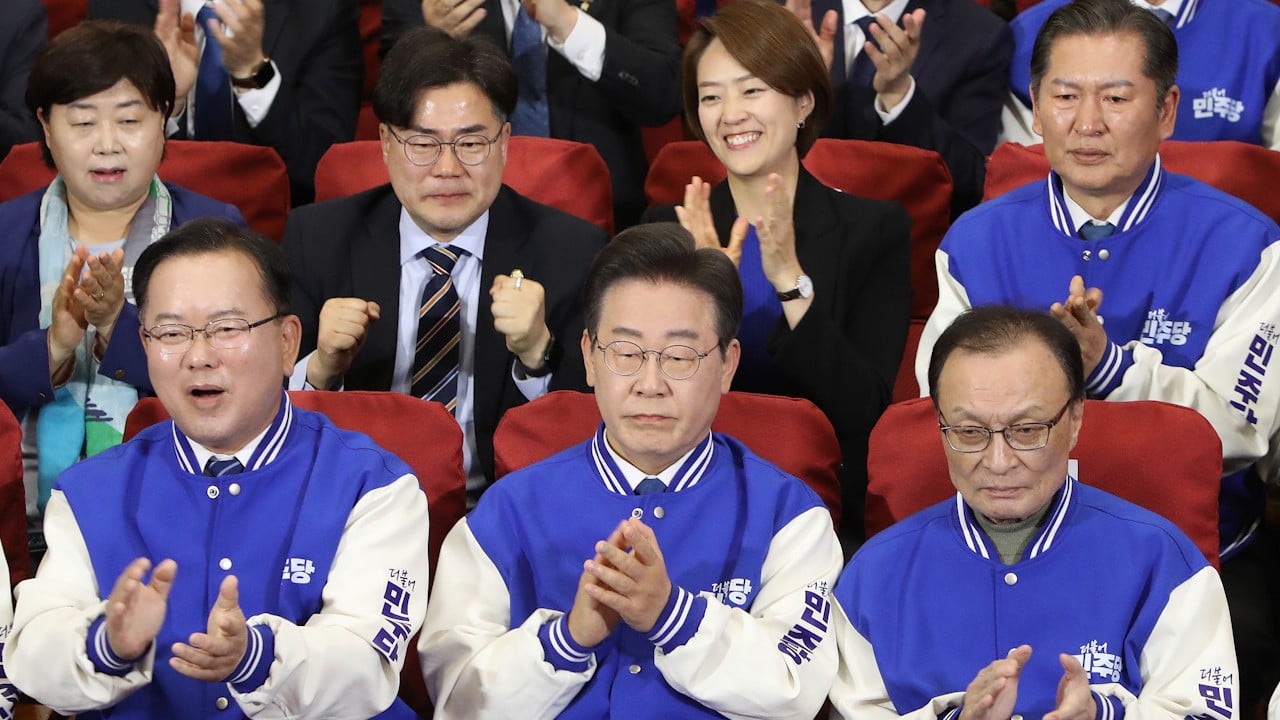If he attempts to delay legal proceedings against himself until after the next presidential election in 2027 by clogging up the wheels of justice with a backlog of witnesses – or leverages the opposition’s new-found strength to pursue Yoon’s impeachment – he could “ignite a new cycle of partisan strife, further polarising the country’s political landscape”, Kim said.
Lee had repeatedly called for a meeting with the president, arguing that the country was in the midst of a crisis not seen in decades, with economic stagnation, mounting geopolitical tensions and a perceived erosion of democracy.

Yoon, whose approval rating hit at an all-time low of just 23 per cent last month according to a Gallup Korea poll, saw his party suffer a devastating defeat at the hands of the opposition, comprising Lee’s bloc and other splinter groups.
The ruling party only managed to secure 108 of the assembly’s 300 seats in the April 10 National Assembly elections, with the opposition scooping up the remaining 192 – just eight seats short of the number required to pursue impeachment proceedings against a sitting president.
The vote was seen as a midterm referendum on Yoon’s performance two years into his five-year tenure, with the Lee meeting reflecting the president’s reluctant acknowledgement of the need for dialogue.
Yoon and Lee’s meeting over tea at the presidential office lasted more than two hours. The president had reportedly promised to “communicate humbly and flexibly” with the opposition after his party’s electoral drubbing.
The conservative JoongAng newspaper said in an opinion piece the following day: “Rhetoric doesn’t count any more. If the president thinks that people gave him a whipping, he should show behavioural change”.
After the meeting, the president’s office emphasised the importance of initiating dialogue with the opposition. But Lee’s party expressed disappointment, saying the president did not exhibit the desired level of willingness to alter his course of action or policies.
The government should reconsider its biased diplomacy, putting all its eggs in one basket
“Concerns are growing over the absence of diplomatic efforts as global geopolitical crises, including tensions in the Taiwan Strait and the war in Ukraine, could spill over onto the Korean peninsula at a time when inter-Korean relations are at their worst level in decades,” said Jhee Byong-kuen, a political-science professor at Chosun University in Gwangju.
“The government should reconsider its biased diplomacy, putting all its eggs in one basket.”
How a modern-day Korean war may unfold, if Kim follows through on his threats …
How a modern-day Korean war may unfold, if Kim follows through on his threats …
Paichai University’s Kim expressed doubt that Yoon would modify his approach.
